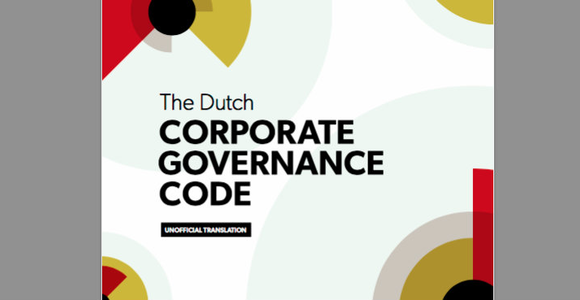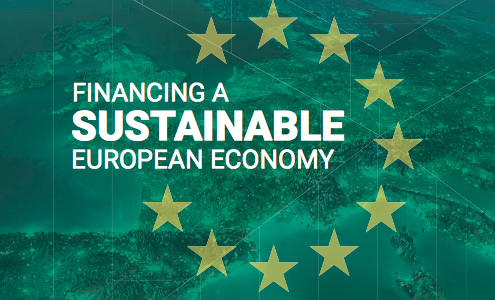The statement is a major positive development as it sends a clear message that leaders of global companies think that putting shareholders' interests first and bending to the short-term pressures of capital markets is not a viable business strategy. The 181 signatory CEOs instead declare their commitment to deliver value to all stakeholders. This shows that they recognise the fallacy of shareholder primacy, especially the relentless drive to maximise short-term profits it causes, and its consequences for companies’ development, their ability to address sustainability challenges, and exploitation of the workforce.
Take for example climate change: a bold decarbonisation strategy requires sacrificing short-term profits that can be made from carbon-heavy assets, but in the long-term it is indispensable for companies’ survival. Generating long-term value for shareholders thus requires that a company takes into account all stakeholders and capitals upon which its success depends, not merely the interests of short-term investors.
The theory of maximising shareholder value as the governing principle of corporate governance originated in the U.S and has been aggressively promoted in academia, policy and business on both sides of the Atlantic. The Business Roundtable itself endorsed it in 1997. This theory has significantly influenced EU policy and shaped the market reality in which large listed European companies operate. It drove changes in the regulation of corporate reporting, mergers and takeovers, and executive pay. It also aligned the interest of corporate executives and short-term shareholders and pitted them against workers and the society at large. It made it near impossible to discuss in good-faith any regulation of corporate responsibilities, no matter how important and common sense such regulation might have been.
The statement mirrors a growing consensus among practitioners, policy makers as well as academics in this area. The South African KING IV Corporate Governance Report, for example, explicitly rejects shareholder primacy and is based instead on a multicapital model which recognises the importance of all stakeholders. Similar thinking is guiding the European Commission's work on Sustainable Finance Action Plan, which addresses among other things corporate governance reforms, as well as proposals in the U.S., most notably Elizabeth Warren’s Accountable Capitalism Act.
Academics have pointed to the fact that shareholder primacy is at odds with corporate law. In 2016, in conjunction with the Purpose of the Corporation Project organised by Frank Bold, over 60 leading corporate law scholars issued “The Modern Corporation Statement on Company Law” explaining the errors upon which shareholder primacy is based. The impact of this collaboration and subsequent work has been recognised by the Academy of Management with the 2019 International Impactful Collaboration Award.
Nevertheless, shareholder primacy is deeply rooted in business management, education, and corporate governance. Many of the signatories of the Business Roundtable statement are leading companies that are currently scoring very low in transparency, respect for human rights or the fight against climate change*. While their statement is aspirational, it is obvious that the realisation of this vision requires major changes in public policy.
As recognised in the European Commission’s Sustainable Finance Action Plan, capital markets are plagued by extremely short-term horizons. The current model of corporate governance transmits this undue short-termism and forces companies to become overly focused on short-term financial performance at the expense of everything else, including their own future and not to mention their stakeholders’ interests.
In order to enable companies to deliver on their purpose, several systemic changes are needed in corporate governance, including:
- Standardisation of environmental and social reporting, especially with respect to climate change, biodiversity, labour and human rights issues, in order to increase corporate transparency and accountability as well as to enable investors to consider this information in their decisions
- Clarification of directors’ duties with respect to sustainability, in order to trigger a positive loopback between sustainable finance and long-term oriented companies
- Getting rid of stock-based bonus schemes, in order to return the focus of executives on the company's long term success instead of short-term share price
- Ensuring direct representation of sustainability and employees’ interests in corporate governance, in order to ensure that the board is well informed and accountable for their decisions in these regards
- Regulation of corporate responsibility for externalities linked to their business model by their supply chains, in order to prevent or at least mitigate systemic issues - in particular human rights abuses, workers’ exploitation, land grabbing, and deforestation - and the race to the bottom that these issues cause
- A whole array of reforms of the financial system, including the fiduciary duties of investors, in order to ensure that there is a critical mass of investors supporting long-term, socially responsible business strategies.
Needless to say, this vision also requires an uncompromising public policy to mitigate climate change, which will have major repercussions for, at the very least, the energy and transportation sectors. The statement sends a clear message to policy makers that the time has come to have a profound discussion on policies that define the market in which large companies operate. If we want good businesses, we need to ask ourselves what laws good businesses require.
But the statement also asks the companies, including the CEOs who signed it, to ask themselves a number of tough questions. Do we have a strategy that is aligned with the goals of the Paris Agreement on Climate Change? Are the workers who make our products paid a living wage? Do we understand human rights risks in our supply chain and do we know how to prevent those risks? Do we lobby for public policies that make the vision in the statement possible?
* The Corporate Human Rights Benchmark analysed 13 of the companies whose CEOs signed the statement and their average score was 28%, while their top scorer was at 87% (see here).


















